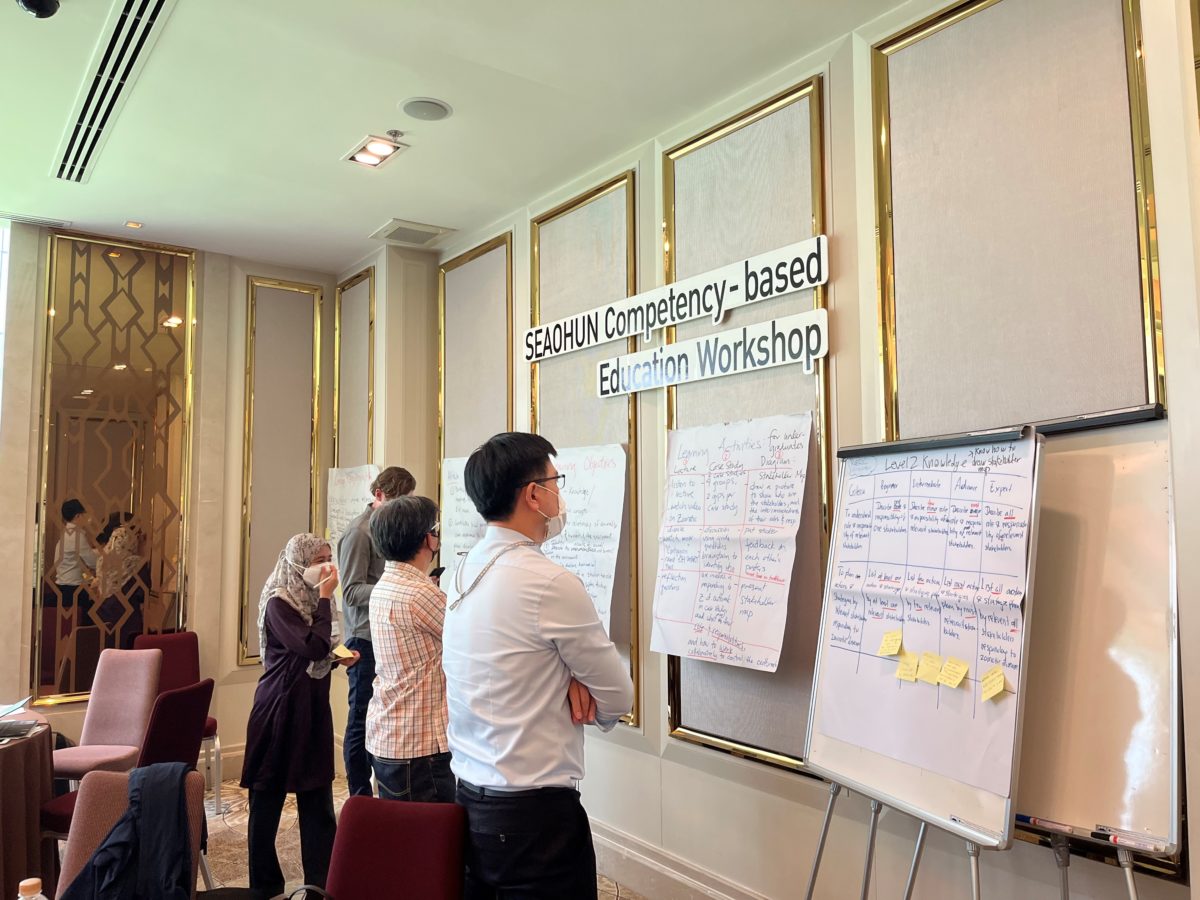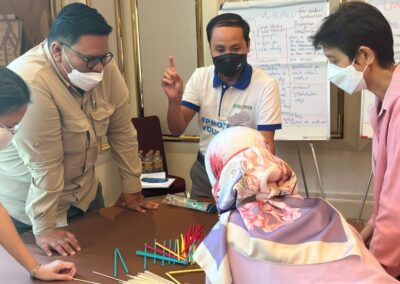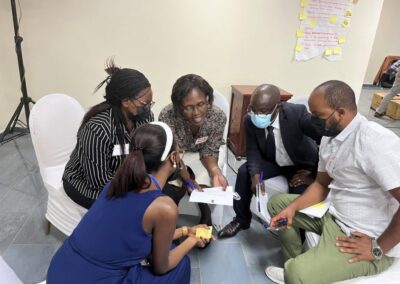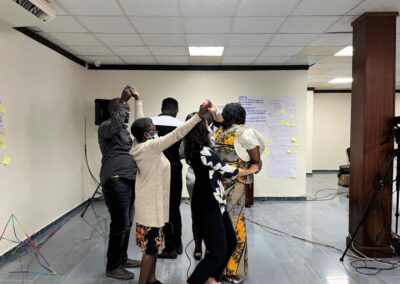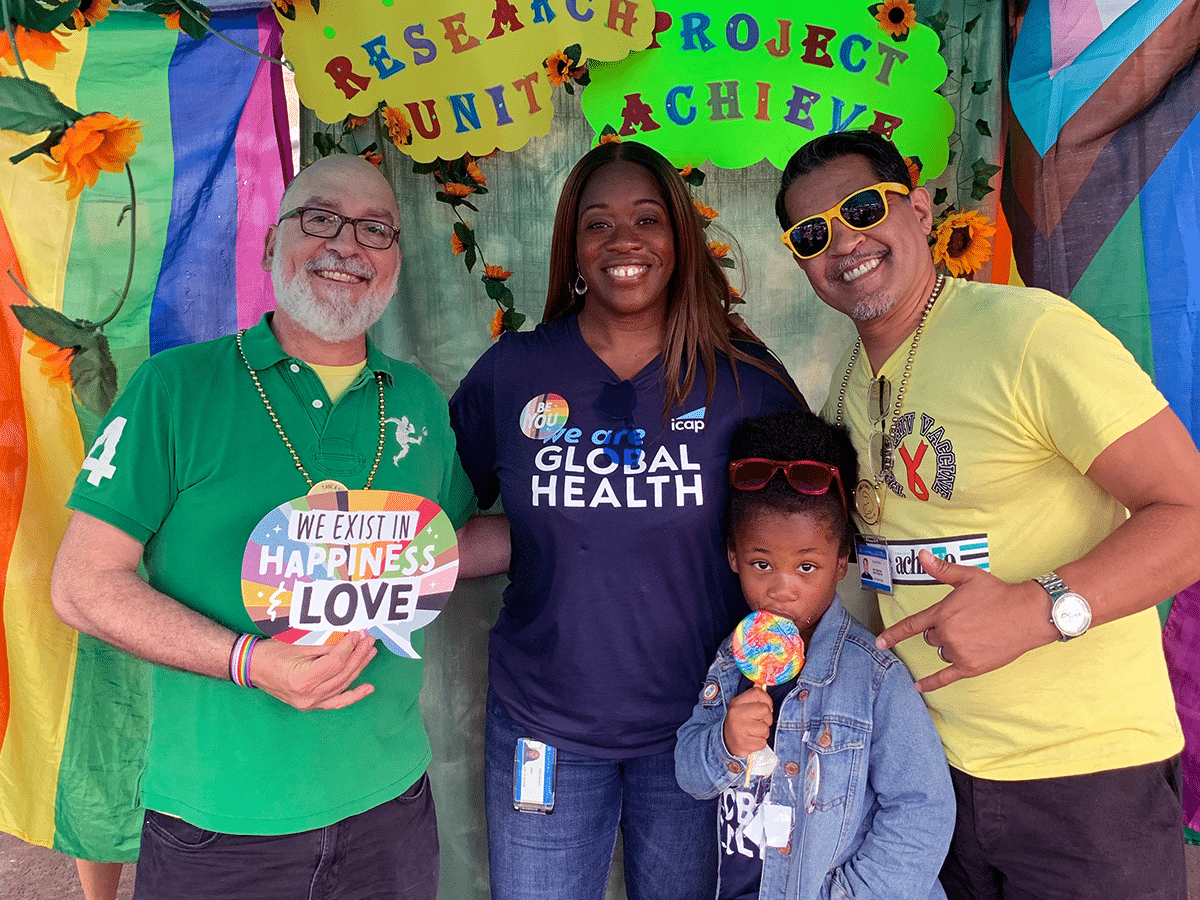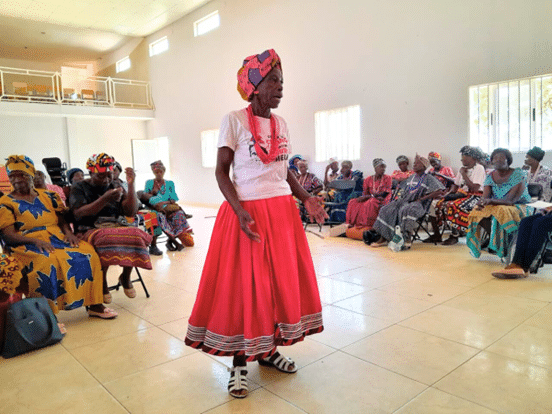Three out of every four new or emerging infectious diseases in people come from animals, according to the U.S. Centers for Disease Control (CDC). In response, ICAP has been emphasizing a One Health approach that encourages collaborative efforts of experts working across human, animal, and environmental health. However, for the approach to be successful, health workers need to be adequality trained in One Health methodology.
“Many zoonotic diseases pose major public health threats; however, the One Health workforce has limited skills to prevent, detect, and respond to these threats,” said Fatima Tsiouris, MS, deputy director for Human Resources for Health Development and deputy principal investigator for the One Health project.
To strengthen One Health regional and national workforce preparedness to prevent and respond to outbreaks and related emergencies, ICAP at Columbia University, in collaboration with the Africa One Health University Network (AFROHUN) and Southeast Asia One Health University Network (SEAOHUN), facilitated two regional four-day workshops in May on competency-based education (CBE) for university faculty teaching One Health.
“While One Health competencies exist, competency-based education models are not widely practiced or used by educational institutions,” said Tsiouris.
From May 9 to 13, 2022, in Uganda, and from May 24 to 27, 2022, in Thailand, ICAP trained 43 participants (21 from eight African countries and 22 from seven Southeast Asian countries) using an ICAP-developed CBE curriculum.
ICAP supported the design of the CBE workshops to equip the One Health educators with tools to standardize CBE at their universities and teach their students who enter or are already in One Health careers at all levels of country health care systems.
Senior ICAP staff on the USAID-funded One Health Workforce – Next Generation (OHW-NG) project, designed the workshops to demonstrate active learning strategies and simulation exercises and give practical guidance to institutions to advance workforce development and assessment strategies.
The training curriculum covered six key domains: CBE and backward design in curriculum development; Developing Competencies and Learning Objectives; Teaching Methodology and Andragogy: Competency-based Assessment; Stage-based Maturity Models; and Experiential Learning Strategies and Simulation-based Assessments.
The workshop included didactic and interactive lectures, group work and discussions, simulations, and action planning.
“We devised the CBE training program to promote creative thinking and problem-solving skills and advocate for competency-based assessment strategies. A workshop post-evaluation survey showed a significant increase in CBE knowledge, highlighting the importance of the training,” said Claire Raether, MEd, BA, training and education specialist for ICAP.
An anonymous pre-and post-assessment to determine the workshop’s effectiveness showed a 26 percent increase in knowledge post-training across all countries and participants.
“Learning about the backward design approach to training development will aid me in doing a better review or assessment of the various learning and development designs our office receives for clearance,” said one participant.
Participants submitted action plans on how they are going to implement the learning from the training in their setting by applying competency-based education in their universities and institutions.
Following the workshops, ICAP plans to support the creation of a community of practice to create lasting south-to-south connections for participants to share experiences and best practices for implementing CBE.
—–
All trainers are senior staff with expertise in competency-based education on the USAID-funded One Health Workforce – Next Generation (OHW-NG) project.
The ICAP trainers were: Susan Michaels-Strasser, PhD, MPH, RN, FAAN, senior director, Human Resources for Health Development, and principal investigator for the OHW-NG project; Fatima Tsiouris, MS, deputy director for Human Resources for Health Development and deputy principal investigator for the OHW-NG project; Getachew Kassa, MSc, MPH, DrBA, senior quality improvement advisor for ICAP and developer of the CBE toolkit; and Claire Raether, MEd, BA, training and education specialist for ICAP.
About One Health Workforce – Next Generation
One Health Workforce – Next Generation is a USAID supported project with a mission to support the Africa One Health University Network (AFROHUN, formerly OHCEA) and the Southeast Asia One Health University Network (SEAOHUN) to become global leaders in delivering state-of-the-art, scalable, and sustainable workforce development that can address critical One Health workforce gaps.
About ICAP
A major global health organization that has been improving public health in countries around the world for nearly two decades, ICAP works to transform the health of populations through innovation, science, and global collaboration. Based at Columbia Mailman School of Public Health, ICAP has projects in more than 30 countries, working side-by-side with ministries of health and local governmental, non-governmental, academic, and community partners to confront some of the world’s greatest health challenges. Through evidence-informed programs, meaningful research, tailored technical assistance, effective training and education programs, and rigorous surveillance to measure and evaluate the impact of public health interventions, ICAP aims to realize a global vision of healthy people, empowered communities, and thriving societies.


